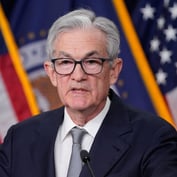The European Central Bank (ECB) cut its benchmark rate from an already-low 1% to a new record of 0.75%, in the hope that it would kickstart an economy on the skids. It also cut its deposit rates to zero, aiming to persuade banks to lend cash to one another instead of reaping interest on as much as 800 billion euros ($995.229 billion) that are deposited with the ECB each night.
Reuters reported that a cut was expected in the lending rate by economists polled earlier. Some had expected a more drastic cut, to 0.50%. The move is not what International Monetary Fund (IMF) Managing Director Christine Lagarde had hoped for; she had urged the ECB to resume government bond purchases in what would have been a bolder intervention in the crisis.
However, the ECB chose instead to act through interest rates, saying that bond purchases would only be a last resort. In a magazine interview released Wednesday, ECB Governing Council member Klaas Knot was quoted saying, “The bond buying program is in a deep sleep, and it will remain there.”
The Bank of England (BoE), meanwhile, held firm on its benchmark interest rate at 0.5%, already a record low, according to a New York Times report that said it increased its bond purchase program. It added £50 billion ($78 billion) on top of the £325 billion it has already committed to the program.








 July 05, 2012 at 09:55 AM
July 05, 2012 at 09:55 AM










